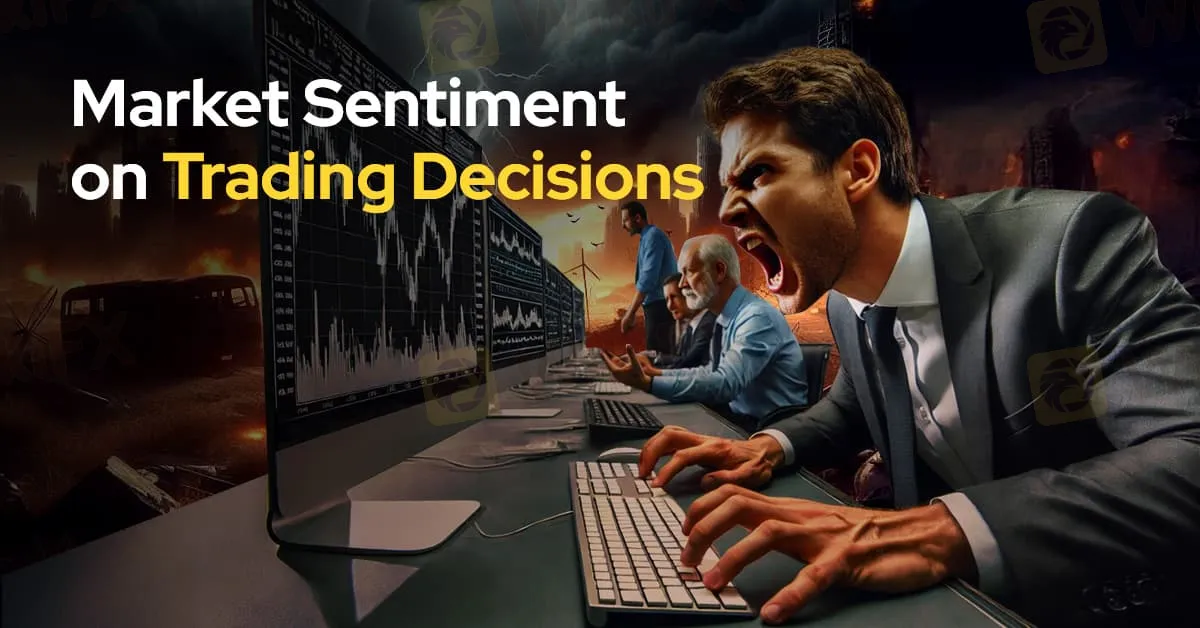简体中文
繁體中文
English
Pусский
日本語
ภาษาไทย
Tiếng Việt
Bahasa Indonesia
Español
हिन्दी
Filippiiniläinen
Français
Deutsch
Português
Türkçe
한국어
العربية
Market Sentiment on Trading Decisions
Abstract:Market sentiment refers to the overall attitude of investors toward a particular security or financial market. It plays a crucial role in shaping market trends and influencing trading decisions. Understanding market sentiment can help traders anticipate price movements and make more informed choices.

Market sentiment refers to the overall attitude of investors toward a particular security or financial market. It plays a crucial role in shaping market trends and influencing trading decisions. Understanding market sentiment can help traders anticipate price movements and make more informed choices.
What Is Market Sentiment?
Market sentiment is often driven by news, economic indicators, earnings reports, and global events. It can be categorized as bullish (optimistic) or bearish (pessimistic). Bullish sentiment indicates confidence in rising prices, while bearish sentiment suggests expectations of declining prices.
The Role of Psychological Factors
Emotions such as fear and greed significantly impact market sentiment. During periods of optimism, traders may overlook risks and drive prices higher. Conversely, in times of uncertainty, fear can lead to panic selling, exacerbating market declines. Recognizing these psychological factors is essential for understanding market dynamics.

Tools for Gauging Market Sentiment
- Surveys and Indices: Tools like the Consumer Confidence Index (CCI) and the Fear & Greed Index provide insights into investor sentiment. These indices aggregate data to reflect the mood of the market.
- Social Media and News Analysis: Monitoring social media platforms and news outlets can help traders gauge public sentiment. Positive or negative trends in discussions can signal potential market movements.
- Technical Indicators: Some traders use sentiment indicators, such as the Commitment of Traders (COT) report, which provides insights into the positioning of different market participants.
Influence on Trading Decisions
Understanding market sentiment allows traders to align their strategies with prevailing market conditions. For instance:
- Contrarian Strategies: Traders may take positions against prevailing sentiment, buying when others are selling (and vice versa) to capitalize on potential reversals.
- Trend Following: Traders might choose to follow the prevailing sentiment, entering positions that align with the dominant trend to maximize gains.
Conclusion
Market sentiment is a powerful force in the financial markets, influencing trading decisions and price movements. By understanding and analyzing sentiment, traders can improve their decision-making processes, adapt their strategies, and enhance their chances of success in the ever-changing landscape of trading.

Disclaimer:
The views in this article only represent the author's personal views, and do not constitute investment advice on this platform. This platform does not guarantee the accuracy, completeness and timeliness of the information in the article, and will not be liable for any loss caused by the use of or reliance on the information in the article.
Read more

Deutsche Bank Facing Record Fine from German Watchdog – What’s the Price
Germany's watchdog imposed a EUR 23.05 million penalty to Deutsche Bank AG for violating several regulatory requirements under German law. According to the Authority, the company breached organisational requirements under the German Securities Trading Act in connection with the sale of derivatives. In addition, its Postbank branch disregarded the obligation to record investment advice and repeatedly failed to comply with the requirements of the German Payment Accounts Act regarding the account switching service.

The Hidden Tactics Brokers Use to Block Your Withdrawals
In the fast-paced world of online trading, liquidity is everything. Traders and investors must have unrestricted access to their funds at all times. Any broker that imposes unnecessary conditions or delays when it comes to withdrawals is raising a glaring red flag.

Trade Nation 2025 Most Comprehensive Review
This article evaluates the broker from multiple dimensions, including a basic introduction, fees, safety, account opening, and trading platforms.

FCA Warns of Trading212 Clone Scam Targeting Investors
FCA alerts investors about a Trading212 clone scam using fake details. Learn how to spot clones and protect your funds with the WikiFX app.
WikiFX Broker
Latest News
Is $CORONA Memecoin a Legit Crypto Investment?
Is Pi Network the Next Big Crypto Opportunity?
Donald Trump’s Pro-Crypto Push Boosts PH Markets
Japan’s Shift in Crypto Policy and What It Means for Investors
Is Linkbex a Scam? SFC Warns of Virtual Asset Fraud in Hong Kong
5 Best Copy Trading Brokers: You Can Trust in 2025
3 EXCLUSIVE Ramadan Offers That Won’t Last Long! ACT NOW
The Next Crypto Giants: 5 Altcoins to Watch
Forex Trading: Scam or Real Opportunity?
The Hidden Tactics Brokers Use to Block Your Withdrawals
Currency Calculator






